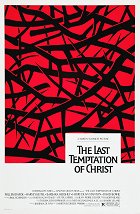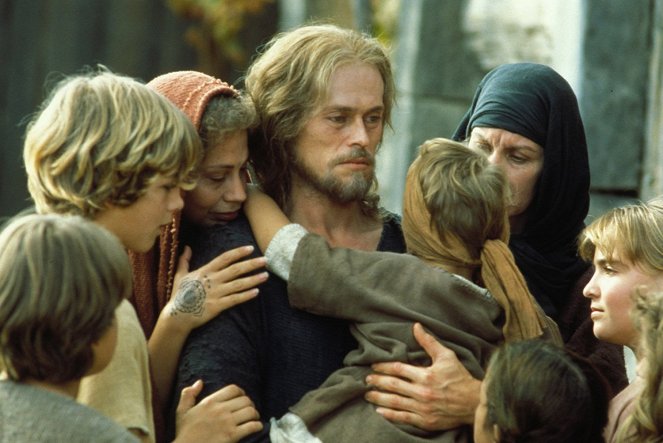Directed by:
Martin ScorseseScreenplay:
Paul SchraderCinematography:
Michael BallhausComposer:
Peter GabrielCast:
Willem Dafoe, Harvey Keitel, Verna Bloom, Barbara Hershey, Roberts Blossom, Gary Basaraba, Barry Miller, Paul Greco, Irvin Kershner, Victor Argo, John Lurie (more)VOD (1)
Plots(1)
This striking vision from the mind of director Martin Scorsese offers an allegorical interpretation of the last days of Jesus Christ, based on the book by Nikos Kazantzakis. Based strictly on Kazantzakis's book, the film has a very different focus than past portraits of the "Messiah." This Jesus (Willem Defoe) is a man wracked with doubt over his position among his followers and fear of the role God has chosen for him, as well as the pain that must accompany it. He is unsure whether the messages he receives come from God or Satan, and he is tempted by a mortal life filled with earthly possessions and sensual love, resulting in a controversial, though genuinely sympathetic, account of Christianity's most revered figure. (official distributor synopsis)
(more)Reviews (6)
Martin Scorsese and his version of Christ's journey to Golgotha. The ending had to be very controversial, but it is clear that both the author of the original material and the filmmakers themselves contemplated over the entire essence of Christ as a symbol. Did he really want to be that symbol? A great depiction of the fact that even Jesus was human, just like anyone else, that he had doubts. The symbol was born out of a person, a real figure, but why couldn't a symbol be created by someone else's account? Is the Bible a text sent by God? Someone had to write it. Of course, Christianity, just like any other religion, is made up, but as we can see, it is well made up.
()
Admiration and disinterest, but that’s already characteristic of my approach towards the films of Martin Scorsese. Objectively, I acknowledge that they are perfectly executed, but I’m simply unable to fully enjoy them. I’m giving The Last Temptation of Christ a fairly high rating mainly because of the surprise at the end – a very smart script – but I’m not likely to watch it again.
()
The Last Temptation of Christ is Scorsese’s best non-Mafia picture. Need I say more? Need I emphasize Dafoe and Keitel’s performances of their lives? Or the atmospheric soundtrack? Do I really have to mention the theological level of this picture and its philosophical aspects that will remain troubling you long after? Describe the wave of outrage of the general public (I recommend the book Banned Films)? No, I think that there isn’t much point and it would be like taking coals to Newcastle... And anyway, this is one of those rare examples where the movie adaptation is better than the (already excellent) book it’s based on.
()
A brilliant reflection on the nature not only of Christianity, but of faith in general. A film with a thought-provoking screenplay that shatters the conventional views of dogmatic individuals who may not like Scorsese's thoughtful, different view of the figure of Jesus Christ. It’s also brilliant visually. The crucifixion scene is compositionally stunning, and note also that in the Stations of the Cross to Golgotha Scorsese was inspired by the paintings of the old Dutch masters, I mean the posture of the people, their gestures and expressions. I consider the burning down of cinemas by radical Christian groups at the premiere of the film to be the result of a profound misunderstanding of Scorsese's seminal work. PS: Gabriel's unconventional soundtrack is equally brilliant.
()
A purely personal affair that could not catch me in any way. Also, comparing it to Mel Gibson's torture-porn is definitely not appropriate. Intellectually and aesthetically, this is a completely different film that attempts to say something different in a distinct form.
()


Ads